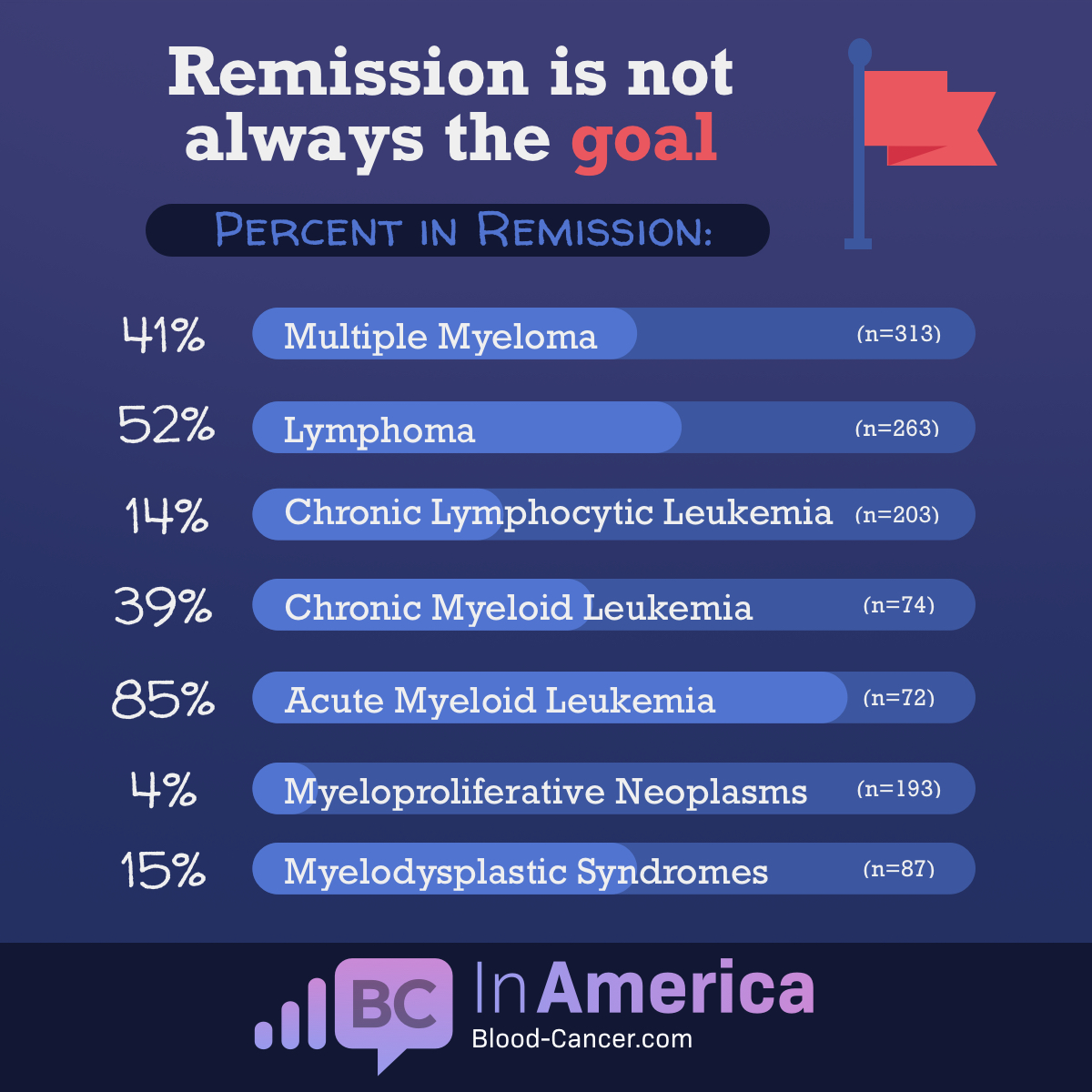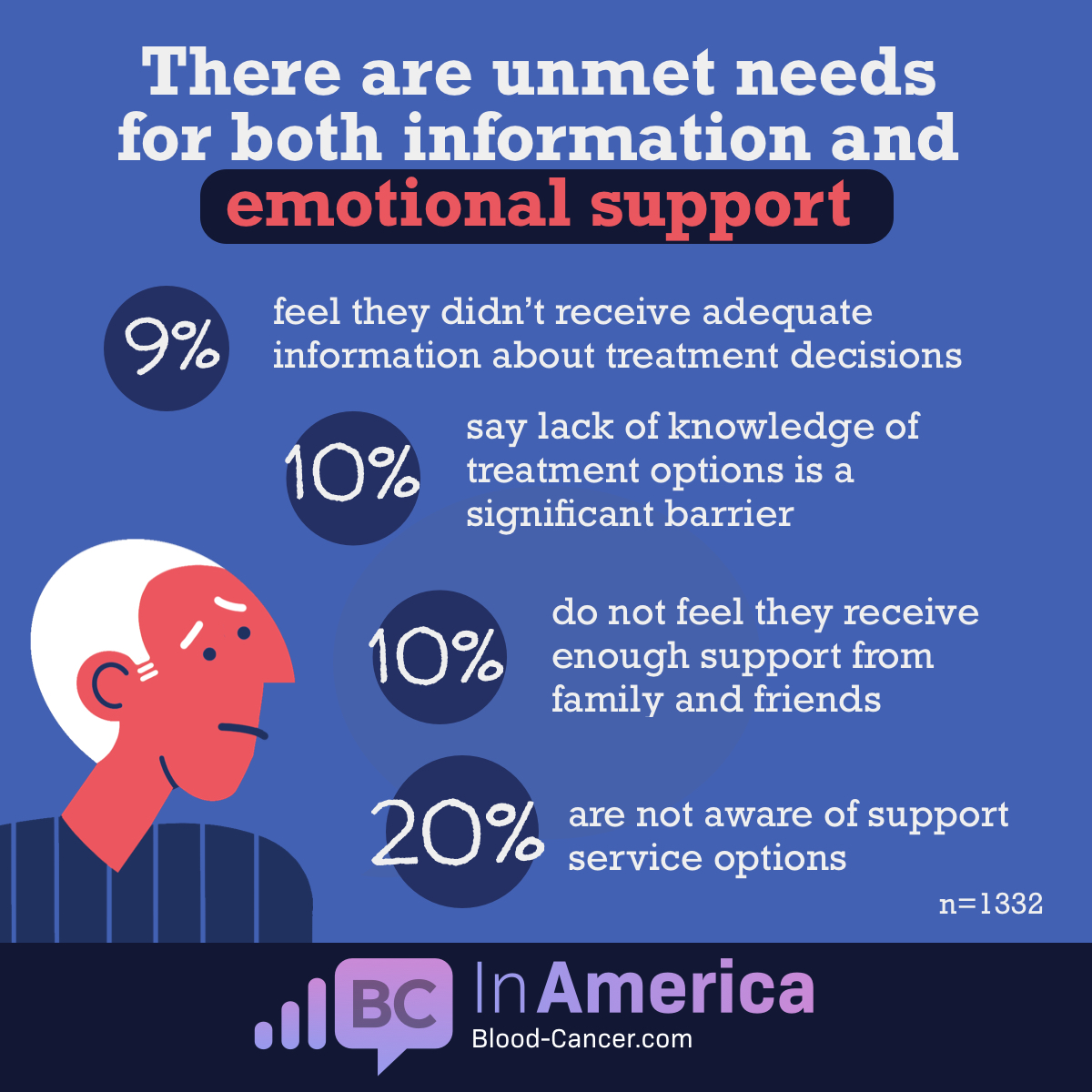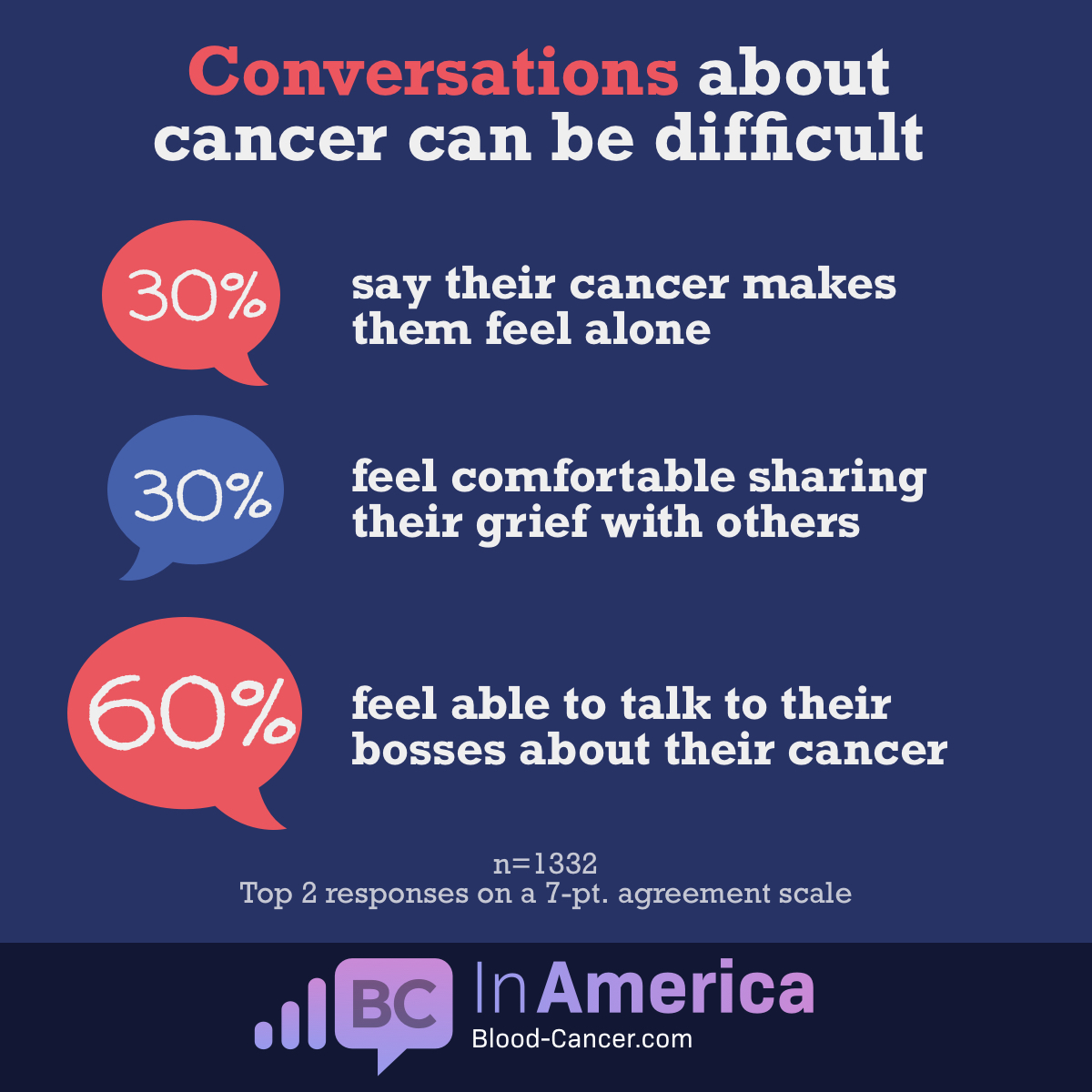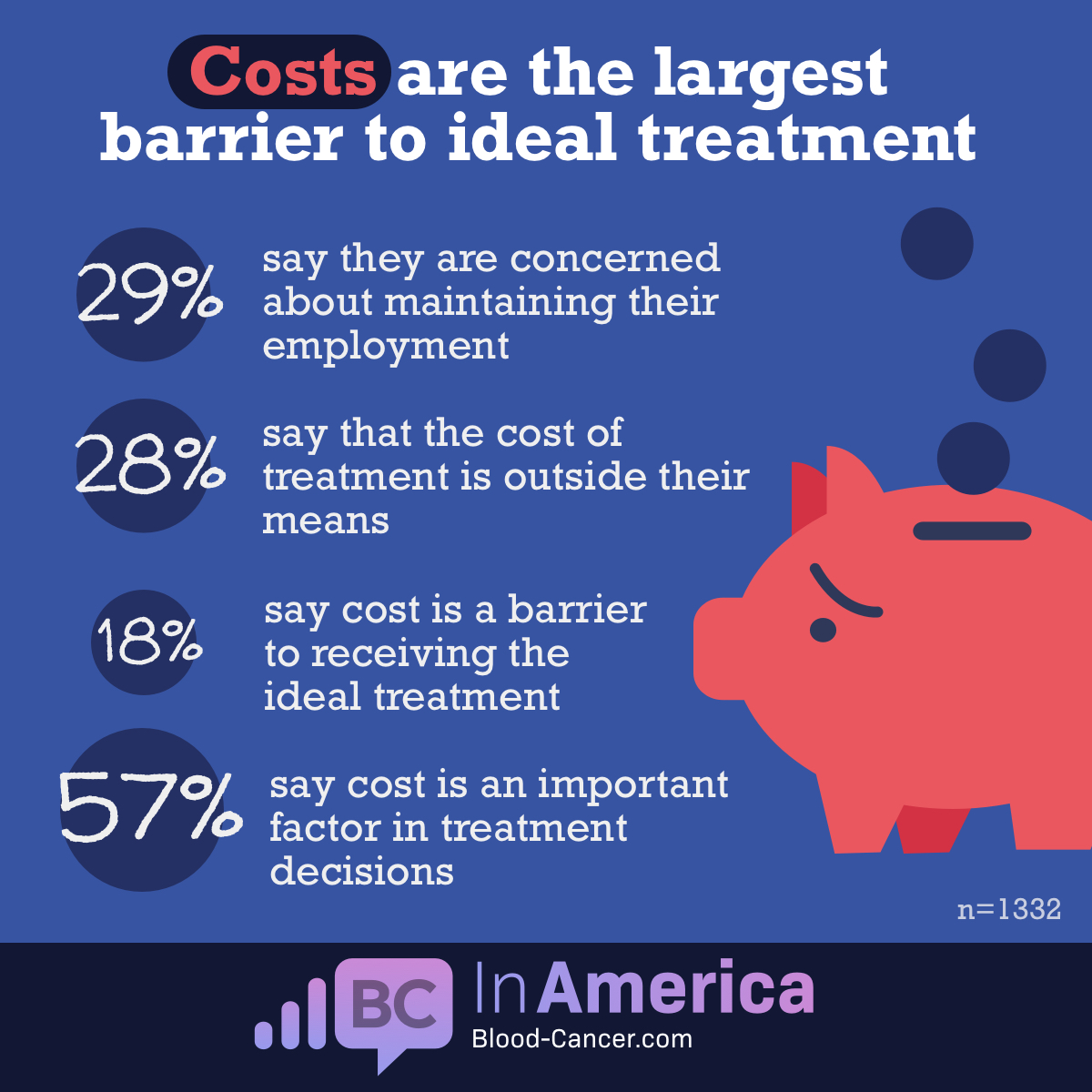Life with Blood Cancer: Results of the 2022 Blood Cancer In America Survey
Blood cancer is a general term that encompasses many different kinds of cancer. Blood cancers are cancers that affect the cells in the blood, in the bone marrow, or in the lymph nodes and are categorized by the type of cell they originate from, where in the body they begin, and how fast or slow they grow. The major categories of blood cancer are leukemias, lymphomas, myelomas, myelodysplastic syndromes, and myeloproliferative neoplasms.
While the types of blood cancer are different in who they typically affect, how they respond to various treatments, and some unique symptoms, there are many commonalities across the types of blood cancer, especially in their impact on the lives of those with the disease.
Treatments for blood cancer have advanced significantly in recent years, and many living with the disease see treatment as a long-term, sometimes life-long, procedure allowing them to live with the disease as a chronic condition. For others, a cure or remission is possible.
In any case, blood cancer is a life-altering condition impacting relationships, finances, and lifestyle, and presents a myriad of challenges. It’s no wonder, one of Blood-Cancer.com’s patient leaders calls blood cancer the worst roommate ever.
For many, blood cancer treatments last a lifetime
Treatment for blood cancer can take many years, and in some cases, a cure or remission isn’t possible but treatment can keep the cancer controlled or managed. In these cases, blood cancer is a chronic condition, one that lasts a long time or may be ongoing.
For some people, treatment for their type of blood cancer puts their disease into complete remission, in which there are no signs or symptoms of the disease. Some blood cancers may come back after remission, which is considered a relapse or recurrence. Other people never experience remission, and their blood cancer may be called refractory.
Some doctors use the term “controlled” to describe a blood cancer that isn’t getting worse or spreading as long as treatment is being given. Another term for a cancer that is controlled with treatment is “stable.”
Information, please
People living with blood cancer often report struggles in gathering the information needed to make the best decisions about their treatment. Many feel they do not have adequate support from family or friends and are unaware of supportive services that may be of use to them.
Cancer conversations are difficult
On Blood-Cancer.com, many people report that having blood cancer is isolating and, indeed, can drive loved ones and friends away. The 2022 Blood Cancer In America Survey bears this out. Conversations about cancer are hard. Because conversations can be difficult, this may be a reason that cancer-specific websites are a key information resource.
Financial costs also loom large
Managing a long-term (chronic) health condition like blood cancer can take a financial toll. Multiple types of treatment including surgery, radiation therapy, chemotherapy administration, and hospitalization may be necessary. New treatments, including stem cell transplants, immunotherapy, and Car-T therapy, are now available but are expensive. There are the costs of medicines, testing, copays, travel, and more.
Without a doubt, these financial concerns impact life with blood cancer.
The 2022 Blood cancer In America Survey was conducted online from January 12, 2022 through May 2, 2022. The survey was completed by 1,332 people.





Join the conversation